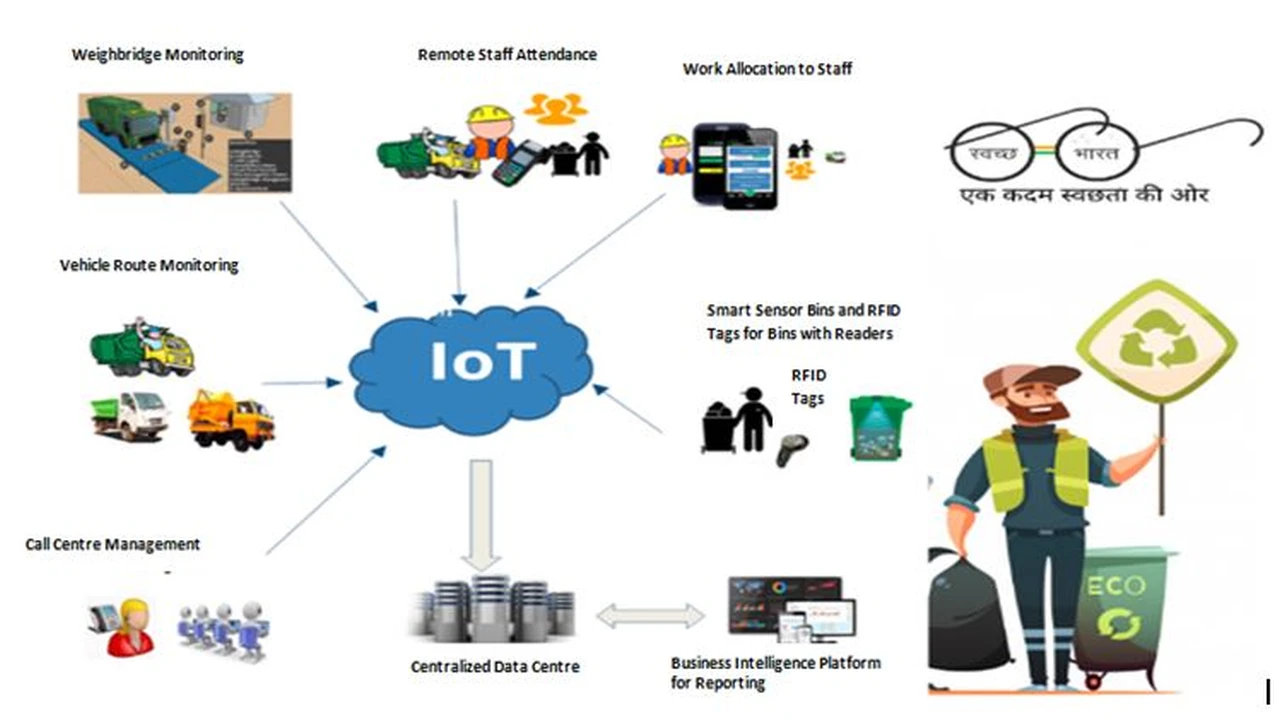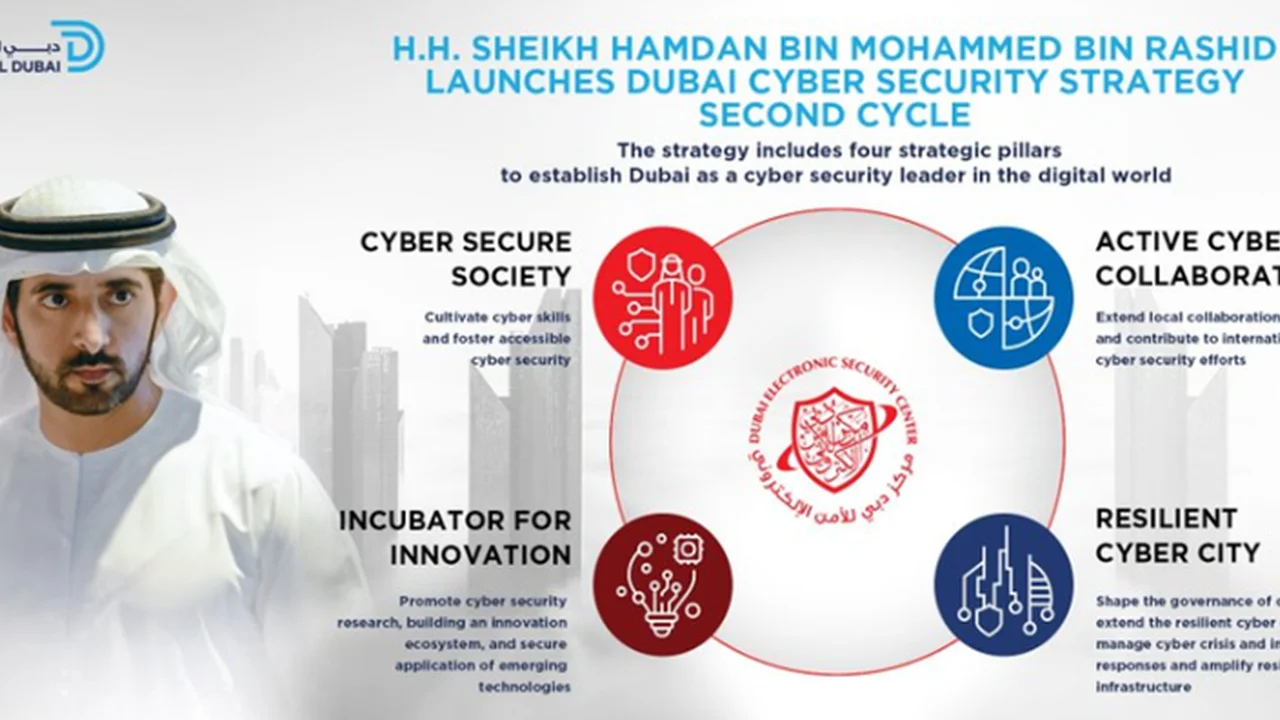5 Smart Waste Management Solutions Using AI in Sharjah

This article delves into the transformative role of Artificial Intelligence (AI) in shaping the future of urban living. We explore various smart city applications, innovative solutions, and specific product recommendations aimed at enhancing efficiency, sustainability, and the overall quality of life in modern cities. From smart waste management to intelligent transportation systems, we examine how AI is revolutionizing urban infrastructure and services, providing insights into real-world use cases, product comparisons, and detailed information, including pricing where available.
AI Powered Smart City Infrastructure Enhancing Urban Efficiency
The backbone of any smart city is its infrastructure. AI plays a pivotal role in optimizing and managing this infrastructure, making cities more efficient, sustainable, and livable. Let's explore some key applications.
Smart Grids and Energy Management AI Solutions
Traditional power grids are often inefficient and prone to outages. AI-powered smart grids offer a solution by dynamically managing energy distribution, predicting demand, and optimizing energy consumption. These systems utilize machine learning algorithms to analyze vast amounts of data from sensors and meters, enabling real-time adjustments and proactive maintenance.
Use Cases of AI in Smart Grids
- Predictive Maintenance: AI algorithms analyze sensor data to predict equipment failures, allowing for proactive maintenance and reducing downtime.
- Demand Response: AI systems can automatically adjust energy consumption based on real-time demand, reducing peak loads and stabilizing the grid.
- Renewable Energy Integration: AI optimizes the integration of renewable energy sources like solar and wind power, ensuring a stable and reliable energy supply.
Product Recommendations for Smart Grid Solutions
- Siemens Spectrum Power: A comprehensive energy management platform that utilizes AI to optimize grid operations.
- Itron Riva: A smart grid platform that provides advanced metering infrastructure and data analytics capabilities.
- ABB Ability: A suite of digital solutions for energy management, including AI-powered predictive maintenance and optimization tools.
Product Comparison Smart Grid Platforms
When choosing a smart grid platform, consider factors such as scalability, integration capabilities, data analytics features, and security. Siemens Spectrum Power is known for its comprehensive functionality and scalability, while Itron Riva excels in advanced metering infrastructure. ABB Ability offers a broad range of solutions, making it suitable for diverse needs.
Pricing Information Smart Grid Technologies
Pricing for smart grid technologies varies depending on the scale of the deployment and the specific features required. Typically, these solutions involve upfront costs for hardware and software, as well as ongoing maintenance and support fees. Contact vendors directly for detailed pricing information and customized quotes.
Intelligent Transportation Systems AI Driving Urban Mobility
Traffic congestion, pollution, and inefficient public transportation are major challenges in urban areas. AI-powered intelligent transportation systems (ITS) offer solutions by optimizing traffic flow, improving public transit, and promoting sustainable mobility.
Use Cases of AI in Intelligent Transportation Systems
- Traffic Management: AI algorithms analyze real-time traffic data to optimize traffic signal timing, reduce congestion, and improve traffic flow.
- Autonomous Vehicles: AI is the driving force behind autonomous vehicles, enabling safer, more efficient, and more sustainable transportation.
- Public Transportation Optimization: AI optimizes bus and train schedules, predicts passenger demand, and improves the overall efficiency of public transportation systems.
Product Recommendations for Intelligent Transportation Systems
- PTV Group Optima: A traffic management platform that utilizes AI to optimize traffic flow and reduce congestion.
- Iteris ClearGuide: A real-time traffic information and management system that provides actionable insights for traffic engineers.
- Nvidia Drive: A platform for autonomous vehicle development, providing the hardware and software tools needed to build self-driving cars.
Product Comparison Intelligent Transportation Platforms
When selecting an ITS platform, consider factors such as data accuracy, real-time capabilities, integration with existing infrastructure, and scalability. PTV Group Optima is known for its advanced traffic modeling capabilities, while Iteris ClearGuide excels in real-time traffic information and incident management. Nvidia Drive is the leading platform for autonomous vehicle development.
Pricing Information Intelligent Transportation Systems
Pricing for ITS solutions varies depending on the size of the city, the complexity of the system, and the specific features required. Typically, these solutions involve upfront costs for hardware and software, as well as ongoing maintenance and support fees. Contact vendors directly for detailed pricing information and customized quotes.
Smart Waste Management AI Reducing Environmental Impact
Inefficient waste management practices contribute to pollution, greenhouse gas emissions, and resource depletion. AI-powered smart waste management systems offer solutions by optimizing waste collection routes, reducing landfill waste, and promoting recycling.
Use Cases of AI in Smart Waste Management
- Waste Bin Monitoring: AI-powered sensors monitor waste bin levels and optimize collection routes, reducing fuel consumption and emissions.
- Waste Sorting and Recycling: AI algorithms can automatically sort and separate different types of waste, improving recycling rates and reducing landfill waste.
- Predictive Waste Generation: AI systems can predict waste generation patterns, allowing for proactive waste management planning.
Product Recommendations for Smart Waste Management Solutions
- Compology: A waste bin monitoring system that utilizes AI to optimize waste collection routes.
- ZenRobotics: A robotic waste sorting system that uses AI to identify and separate different types of waste.
- Enevo: A smart waste management platform that provides real-time data and analytics to optimize waste collection and recycling.
Product Comparison Smart Waste Management Platforms
When choosing a smart waste management platform, consider factors such as sensor accuracy, data analytics capabilities, integration with existing waste management systems, and scalability. Compology is known for its reliable waste bin monitoring sensors, while ZenRobotics excels in robotic waste sorting. Enevo offers a comprehensive platform for managing all aspects of waste collection and recycling.
Pricing Information Smart Waste Management Technologies
Pricing for smart waste management technologies varies depending on the size of the city, the number of waste bins, and the specific features required. Typically, these solutions involve upfront costs for hardware and software, as well as ongoing maintenance and support fees. Contact vendors directly for detailed pricing information and customized quotes.
AI Enhancing Citizen Services Improving Quality of Life
AI is not just about infrastructure; it also plays a crucial role in enhancing citizen services, making cities more responsive, accessible, and user-friendly. Let's explore some key applications.
AI Powered Public Safety Enhancing Security and Response
Ensuring public safety is a top priority for any city. AI-powered public safety systems offer solutions by enhancing surveillance, predicting crime, and improving emergency response.
Use Cases of AI in Public Safety
- Video Surveillance: AI algorithms analyze video footage from surveillance cameras to detect suspicious activities, identify criminals, and prevent crime.
- Predictive Policing: AI systems analyze crime data to predict crime hotspots and allocate resources accordingly.
- Emergency Response: AI optimizes emergency response routes, dispatches resources efficiently, and provides real-time information to first responders.
Product Recommendations for Public Safety Solutions
- BriefCam: A video surveillance platform that utilizes AI to analyze video footage and identify objects and events of interest.
- PredPol: A predictive policing platform that uses AI to forecast crime hotspots and allocate resources accordingly.
- RapidSOS: An emergency response platform that provides real-time location information and other critical data to first responders.
Product Comparison Public Safety Platforms
When choosing a public safety platform, consider factors such as accuracy, real-time capabilities, integration with existing systems, and scalability. BriefCam is known for its advanced video analytics capabilities, while PredPol excels in predictive policing. RapidSOS focuses on improving emergency response times and accuracy.
Pricing Information Public Safety Technologies
Pricing for public safety technologies varies depending on the size of the city, the number of cameras, and the specific features required. Typically, these solutions involve upfront costs for hardware and software, as well as ongoing maintenance and support fees. Contact vendors directly for detailed pricing information and customized quotes.
AI Driven Healthcare Improving Access and Efficiency
Access to quality healthcare is essential for a healthy and productive population. AI-driven healthcare systems offer solutions by improving diagnostics, personalizing treatment, and streamlining administrative processes.
Use Cases of AI in Healthcare
- Medical Imaging Analysis: AI algorithms analyze medical images such as X-rays and MRIs to detect diseases and abnormalities with greater accuracy and speed.
- Personalized Medicine: AI analyzes patient data to personalize treatment plans and optimize medication dosages.
- Telemedicine: AI-powered telemedicine platforms provide remote access to healthcare services, improving access for patients in remote areas or with limited mobility.
Product Recommendations for Healthcare Solutions
- IBM Watson Health: A suite of AI-powered healthcare solutions that includes medical imaging analysis, personalized medicine, and drug discovery.
- Google AI Healthcare: A research division focused on developing AI solutions for healthcare, including medical imaging analysis and disease prediction.
- Teladoc Health: A telemedicine platform that provides remote access to healthcare services via video conferencing and phone calls.
Product Comparison Healthcare Platforms
When choosing a healthcare platform, consider factors such as accuracy, security, integration with existing systems, and compliance with regulations. IBM Watson Health is known for its comprehensive suite of AI-powered healthcare solutions, while Google AI Healthcare focuses on cutting-edge research and development. Teladoc Health is a leading provider of telemedicine services.
Pricing Information Healthcare Technologies
Pricing for healthcare technologies varies depending on the size of the hospital, the number of patients, and the specific features required. Typically, these solutions involve upfront costs for hardware and software, as well as ongoing maintenance and support fees. Contact vendors directly for detailed pricing information and customized quotes.
AI Enhanced Education Personalizing Learning and Improving Outcomes
Education is the foundation of a thriving society. AI-enhanced education systems offer solutions by personalizing learning experiences, providing intelligent tutoring, and automating administrative tasks.
Use Cases of AI in Education
- Personalized Learning: AI algorithms analyze student data to personalize learning paths and provide customized content.
- Intelligent Tutoring: AI-powered tutoring systems provide personalized feedback and support to students, helping them master concepts and improve their grades.
- Automated Grading: AI can automate the grading of assignments and exams, freeing up teachers' time for more important tasks.
Product Recommendations for Education Solutions
- Knewton Alta: A personalized learning platform that utilizes AI to adapt to each student's individual learning needs.
- Duolingo: A language learning app that uses AI to personalize lessons and provide customized feedback.
- Gradescope: A platform for grading assignments and exams that utilizes AI to automate the grading process.
Product Comparison Education Platforms
When choosing an education platform, consider factors such as personalization capabilities, content quality, integration with existing systems, and ease of use. Knewton Alta is known for its adaptive learning technology, while Duolingo excels in language learning. Gradescope focuses on simplifying the grading process for teachers.
Pricing Information Education Technologies
Pricing for education technologies varies depending on the size of the school, the number of students, and the specific features required. Typically, these solutions involve subscription fees based on the number of users. Contact vendors directly for detailed pricing information and customized quotes.
Challenges and Considerations Implementing AI in Smart Cities
While AI offers tremendous potential for transforming urban living, there are also challenges and considerations that must be addressed to ensure successful implementation.
Data Privacy and Security Protecting Citizen Information
AI systems rely on vast amounts of data, including personal information about citizens. Protecting this data from unauthorized access and misuse is crucial.
Strategies for Ensuring Data Privacy and Security
- Data Anonymization: Anonymize data to remove personally identifiable information.
- Encryption: Encrypt data to protect it from unauthorized access.
- Access Controls: Implement strict access controls to limit who can access sensitive data.
- Compliance with Regulations: Comply with data privacy regulations such as GDPR and CCPA.
Ethical Considerations Addressing Bias and Fairness
AI algorithms can reflect biases present in the data they are trained on, leading to unfair or discriminatory outcomes. Addressing these biases is essential.
Strategies for Addressing Bias and Ensuring Fairness
- Data Auditing: Audit data for bias and correct any imbalances.
- Algorithm Transparency: Ensure that AI algorithms are transparent and explainable.
- Bias Mitigation Techniques: Use bias mitigation techniques to reduce the impact of bias on AI outcomes.
- Ethical Guidelines: Develop and adhere to ethical guidelines for the development and deployment of AI systems.
Infrastructure Requirements Ensuring Connectivity and Scalability
Implementing AI in smart cities requires robust infrastructure, including reliable connectivity, high-performance computing, and scalable storage.
Strategies for Meeting Infrastructure Requirements
- Invest in Broadband Infrastructure: Ensure that all areas of the city have access to high-speed internet.
- Deploy Edge Computing: Deploy edge computing resources to process data closer to the source.
- Utilize Cloud Computing: Utilize cloud computing services to provide scalable storage and computing resources.
- Develop Open Standards: Develop open standards to ensure interoperability between different AI systems and infrastructure components.
Public Acceptance and Trust Building Confidence in AI
Gaining public acceptance and trust is essential for the successful implementation of AI in smart cities. Citizens need to be confident that AI systems are safe, reliable, and beneficial.
Strategies for Building Public Acceptance and Trust
- Transparency: Be transparent about how AI systems are being used and what data they are collecting.
- Education: Educate the public about the benefits of AI and address any concerns they may have.
- Public Engagement: Engage the public in the development and deployment of AI systems.
- Accountability: Establish clear lines of accountability for the use of AI systems.
Future Trends in AI for Smart Cities Emerging Technologies and Innovations
The field of AI is constantly evolving, and new technologies and innovations are emerging that will further transform smart cities. Let's explore some key trends.
Edge AI Processing Data Closer to the Source
Edge AI involves processing data closer to the source, such as on sensors or embedded devices. This reduces latency, improves security, and enables real-time decision-making.
Benefits of Edge AI
- Reduced Latency: Processing data closer to the source reduces latency and enables faster response times.
- Improved Security: Processing data locally reduces the risk of data breaches and unauthorized access.
- Reduced Bandwidth Consumption: Processing data locally reduces the amount of data that needs to be transmitted over the network.
- Real-Time Decision-Making: Edge AI enables real-time decision-making in applications such as autonomous vehicles and industrial automation.
Federated Learning Collaborative AI without Sharing Data
Federated learning enables collaborative AI without sharing data. This allows multiple organizations to train AI models on their own data without revealing sensitive information.
Benefits of Federated Learning
- Data Privacy: Federated learning protects data privacy by allowing organizations to train AI models on their own data without sharing it.
- Improved Accuracy: Federated learning can improve the accuracy of AI models by training them on a larger and more diverse dataset.
- Reduced Bias: Federated learning can reduce bias in AI models by training them on data from multiple sources.
- Collaboration: Federated learning enables collaboration between organizations without compromising data privacy.
Explainable AI (XAI) Making AI More Transparent
Explainable AI (XAI) focuses on making AI models more transparent and understandable. This allows users to understand how AI systems are making decisions and to identify potential biases or errors.
Benefits of Explainable AI
- Improved Trust: Explainable AI improves trust in AI systems by making them more transparent and understandable.
- Reduced Bias: Explainable AI can help identify and mitigate bias in AI models.
- Improved Accuracy: Explainable AI can help improve the accuracy of AI models by identifying and correcting errors.
- Regulatory Compliance: Explainable AI can help organizations comply with regulations that require transparency in AI systems.
AI and the Metaverse Creating Immersive Urban Experiences
The metaverse is a virtual world that is becoming increasingly integrated with the physical world. AI can play a key role in creating immersive urban experiences in the metaverse, such as virtual tours of cities, simulations of urban planning scenarios, and interactive games that teach people about urban issues.
Applications of AI in the Metaverse for Smart Cities
- Virtual City Tours: AI can create realistic virtual tours of cities that allow people to explore different neighborhoods and landmarks.
- Urban Planning Simulations: AI can simulate the impact of different urban planning scenarios, such as building a new highway or developing a new park.
- Interactive Games: AI can create interactive games that teach people about urban issues such as traffic congestion, pollution, and affordable housing.
- Virtual Collaboration: AI can enable virtual collaboration between urban planners, designers, and citizens.
:max_bytes(150000):strip_icc()/277019-baked-pork-chops-with-cream-of-mushroom-soup-DDMFS-beauty-4x3-BG-7505-5762b731cf30447d9cbbbbbf387beafa.jpg)






